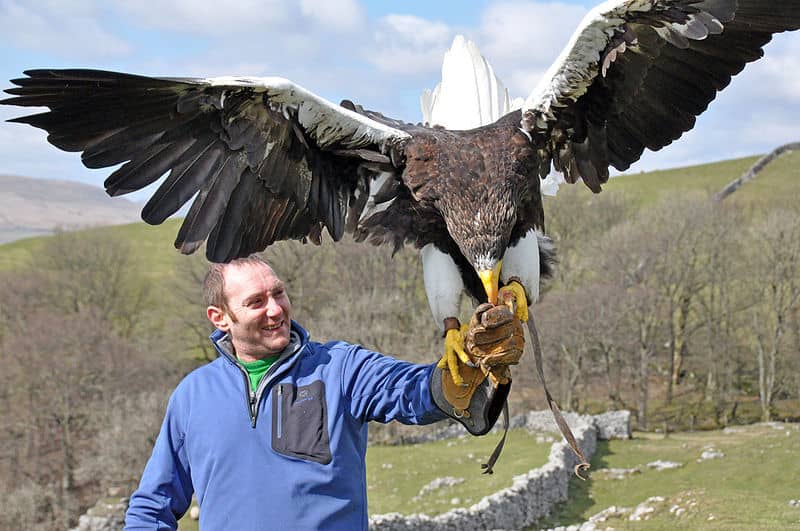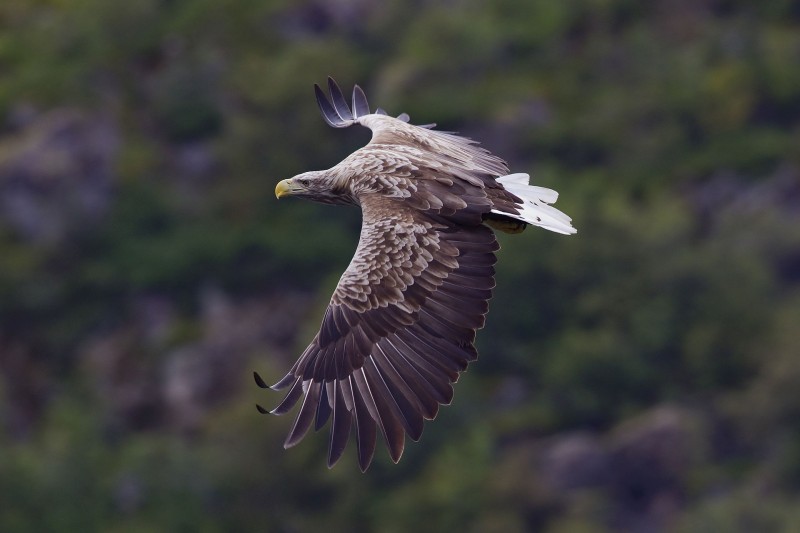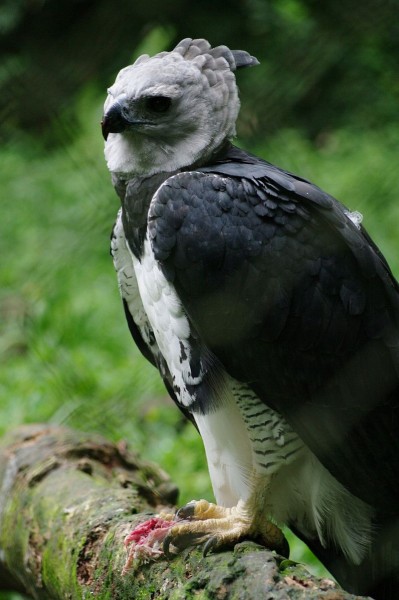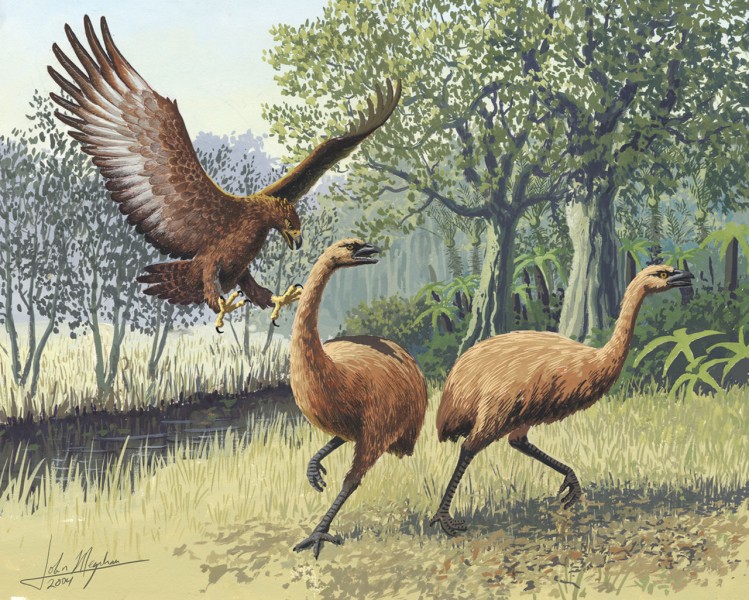5 Mind-bogglingly Massive Eagle Species
OutdoorHub 01.07.16

Among raptors, eagles are the undisputed kings. These apex predators not only manage to dominate the air, but they have also captured our imaginations for thousands of years. There’s a reason that eagles are so popular in works of heraldry and art. Regal, powerful, and sometimes absurdly large, these birds are nearly unrivaled in the skies.
The golden and bald eagles we are most used to are not the largest of their kind. Eagles raised and specifically trained to hunt can be pretty big, but they pale in comparison to some of the largest eagles in the world.
1. White-tailed eagle

The white-tailed eagle is a massive bird. While it may not be the largest or heaviest on this list, it is believed to have the longest wing span of any eagle, with a incredible eight from feather to feather. Body-wise, it is slighty larger than the bald eagle.
The white-tailed eagle has an extensive range across Europe and parts of Asia. A very small and unique population exists in Hawaii, where the bird was once the islands’ largest predator. As a sea eagle, this apex predators preys primarily on fish, but it is opportunistic and its diet varies depending on season. There have been reports of white-tailed eagles stealing away lambs, deer calves, and even larger mammals. Birds such as ducks, geese, and swans are all fair game as well.
2. Harpy eagle

The harpy eagle is the largest and most powerful raptor found in the Americas, although its current range is now restricted to only Mexico, Brazil, and parts of Argentina. Large females can weigh up to 20 pounds and stand three and a half feet tall, but those measurements give a poor indication of the eagle’s power. According to experts, the favorite prey of the harpy eagle is the sloth, which the eagles snatch out of the trees and carry back to their nest. Larger prey, such as capybraras, small adult deer, and peccaries are eaten when they are caught because they are too heavy to be carried. Generally harpy eagles can only lift slightly above their own weight.
Harpy eagles have the longest talons of any living eagle species. Their incredibly powerful feet allow the eagle to capture heavy prey and travel long distances without stopping.
3. Philippine eagle

In the Philippines, this eagle is often called the “king eagle” or simply the “kite.” The Philippine eagle has the longest body of any living eagle, measuring on average the maximum body length of the harpy eagle, but weighs slightly less.
Originally named the monkey-eating eagle due to its prey of choice, the eagle is only native to the Philippines and is currently its national bird. There are only a few hundred Philippine eagles in the wild, but apart from humans, the bird is easily the dominant predator in the country. Researchers have found the remains of anything from Philippine deer to lemurs and even monitor lizards in their nests. Short of larger deer and humans, the Philippine eagle is capable of catching and eating any native animal in its range.
4. Steller’s sea eagle

The Steller’s sea eagle is the heaviest of all extant eagle species, averaging well over 20 pounds. It can only be found on a very narrow strip of land along eastern Asia and is closely related to the white-tailed eagle. This sea eagle prefers to hunt salmon in shallow water, birds, or even the occasional seal pup. Perhaps most notably, the Steller’s sea eagle has a reputation of being a bully and will often steal fish from other predators.
5. Haast’s eagle

This eagle has the dubious honor of being the only one on this list to be extinct. Experts believe that the Haast’s eagle may very well have been the largest species of eagle to ever exist, and the only one to have actually preyed on humans. The Haast’s eagle was native to only the South Island of New Zealand and plays a part in the mythology of the Māori. According to legend, the Haast’s eagle would swoop down and carry humans away.
Experts are skeptical over whether the eagle was truly strong enough to carry off adults, but based on the eagle’s size and powerful muscles, it was reasonable to say that the bird could fly off with young children. The Haast’s eagle’s primary prey was flightless birds, including the now-extinct moa. Don’t let the picture above fool you, moas stand about 12 feet tall and the Haast’s eagle measures just under five feet long.
The Haast’s eagle disappeared sometime around 1400.

